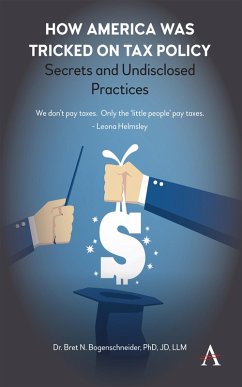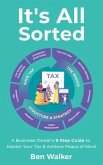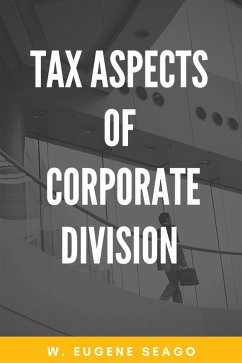How America was Tricked on Tax Policy explains how regular citizens were "tricked" by the outdated view of economists that much heavier taxation of labor rather than capital is economically justifiable. The truth is that workers pay their taxes while the rich pay very little. Based on reputable sources of information, including publications of the Organization for Economic Cooperation and Development (OECD), official statistics data, and the publications in high-ranked journals, the book paves the way for a new policy-making process aimed to achieve more sustainable taxation and to increase the wellbeing of citizens as the main goal of any modern state policy.
Dealing with critically important and underexplored topics in tax policy, the book challenges an enshrined dogma that is rarely challenged at the level of policy. In doing so, this book envisions policy changes that could be highly impactful in a new political administration. This book proposes that governments should look for not just corporate income tax rate reduction when announcing their tax reforms but should equally focus on the reduction of the overall tax burden on labor. The negative impact and high social cost of wage taxation is exemplified by the key areas of tax policy that are relevant for every wealthy state, such as taking due care of public health, investing in education and wellbeing of children, and supporting small business for the overall benefit to society. The book compellingly argues how tax policy could be improved by incorporating science and scientific methods.
Dealing with critically important and underexplored topics in tax policy, the book challenges an enshrined dogma that is rarely challenged at the level of policy. In doing so, this book envisions policy changes that could be highly impactful in a new political administration. This book proposes that governments should look for not just corporate income tax rate reduction when announcing their tax reforms but should equally focus on the reduction of the overall tax burden on labor. The negative impact and high social cost of wage taxation is exemplified by the key areas of tax policy that are relevant for every wealthy state, such as taking due care of public health, investing in education and wellbeing of children, and supporting small business for the overall benefit to society. The book compellingly argues how tax policy could be improved by incorporating science and scientific methods.
Dieser Download kann aus rechtlichen Gründen nur mit Rechnungsadresse in A, D ausgeliefert werden.









